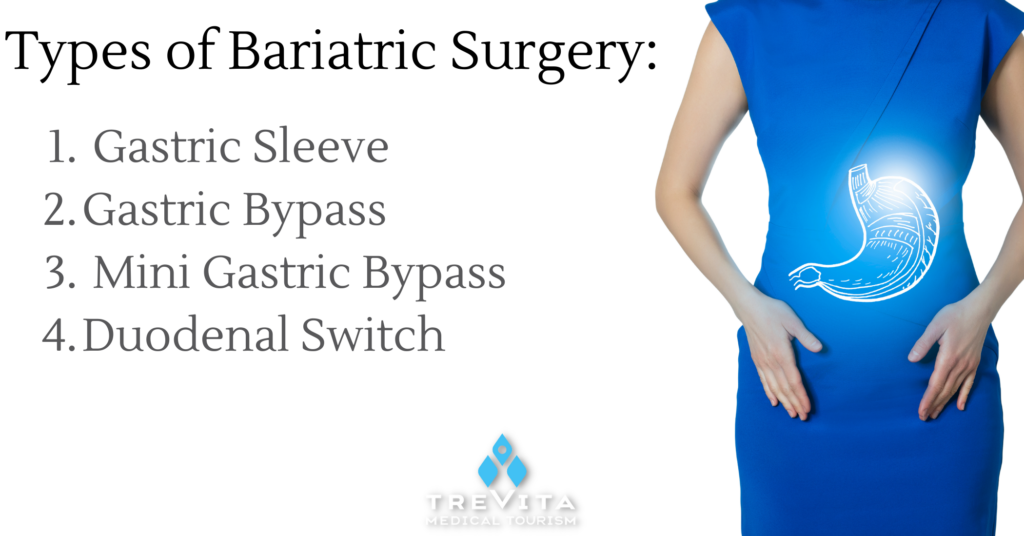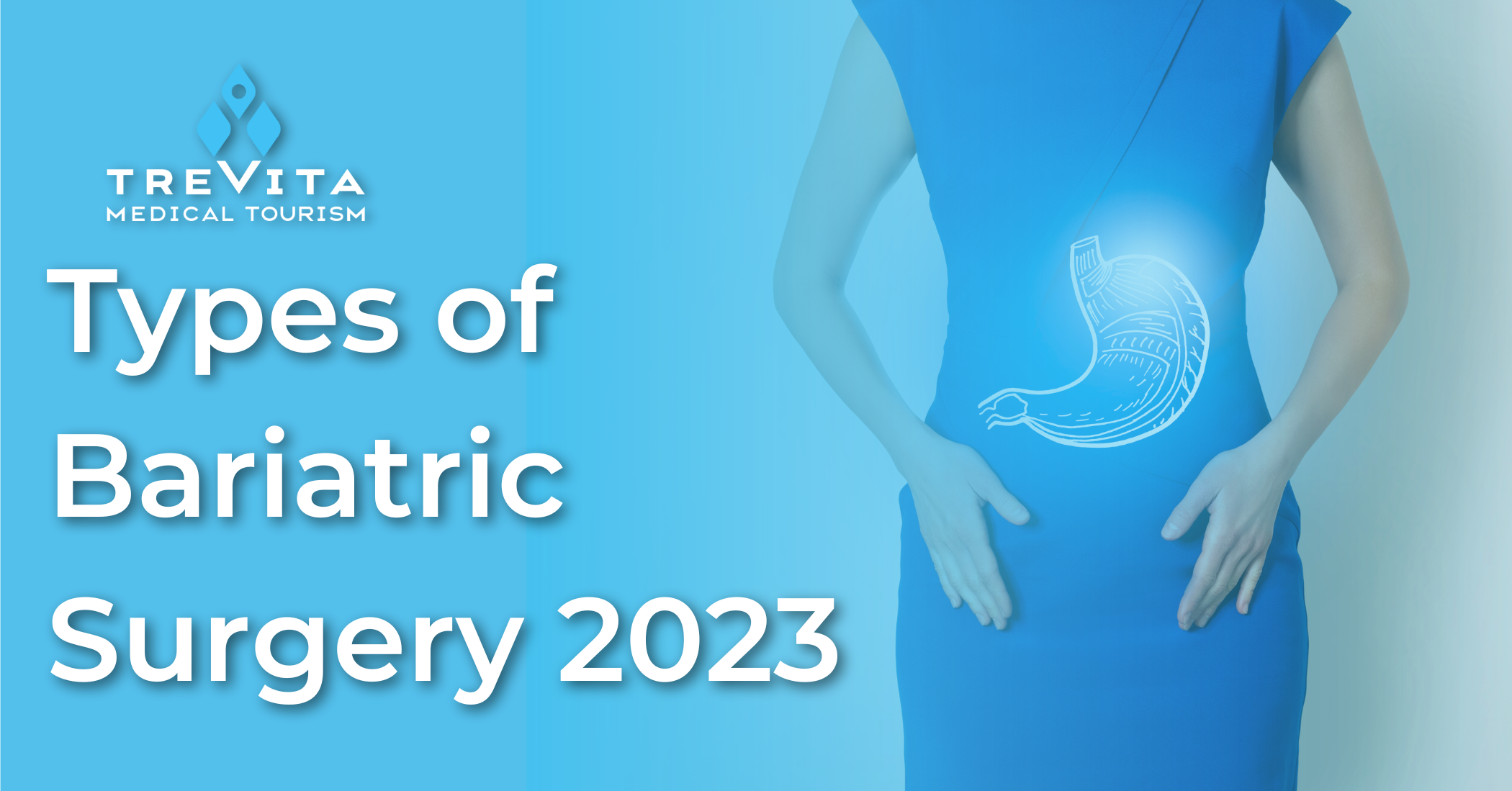The types of bariatric surgeries to choose from can seem overwhelming. Within this blog post, we will delve into the diverse spectrum of bariatric procedures, including the Gastric Sleeve, Gastric Bypass, Mini Gastric Bypass, and the Duodenal Switch. Each of these surgeries have distinctive features and anticipated outcomes. We will be equipping you with the knowledge needed to make a well-informed decision.
Determining Factors for Bariatric Surgery
Before delving into the types of bariatric surgery, it’s important to consider the determining factors that can guide your choice. These factors include:
Current BMI: Your current Body Mass Index (BMI) is a crucial factor in determining the most suitable bariatric procedure for you.
Age: Age can play a role in deciding the best approach, as the risks and benefits may vary with age.
Health History: Your medical history, including any existing health conditions, can impact the choice of procedure.
Previous Procedures: If you’ve had previous bariatric surgeries or medical procedures, this may affect your options for further surgery.
At TreVita, we prioritize providing the most effective bariatric procedures for our patients. We understand that choosing the right procedure is a significant decision, and we’re here to help you make an informed choice. Let’s dive into the details of some of the most commonly performed bariatric surgeries.
Vertical Sleeve Gastrectomy (aka “Gastric Sleeve”)
The Gastric Sleeve, also known as Sleeve Gastrectomy or VSG surgery, is a restrictive procedure that focuses on the stomach. This is arguable the most popular type of bariatric surgery. During this surgery, the stomach is transformed into a long tube or “sleeve,” with approximately two-thirds of the stomach removed. This reshaping of the stomach leads to a faster and more prolonged sense of fullness, reducing appetite and the amount of food you can consume at once.
Benefits of the Gastric Sleeve:
- Eliminates the desire to eat as much or as often.
- Simpler procedure with fewer complications.
- Your stomach continues to function normally.
How it works: The reduced stomach size restricts food intake, helping patients lose weight effectively.
Roux-en-Y Gastric Bypass Surgery (RYGB)
The Gastric Bypass, also known as RNY, is one of the most practiced and researched bariatric procedures. It involves creating a small pouch from the stomach tissue, roughly the size of a golf ball. A section of the small intestine called the jejunum is rerouted to this newly formed pouch, bypassing the stomach and duodenum.
Benefits of Gastric Bypass Surgery:
- Reduces food intake.
- Provides a sense of fullness.
- Proven effectiveness for long-term weight loss.
How it works: By reducing the stomach’s capacity and bypassing a portion of the intestines, food intake is limited, leading to weight loss.
Mini Gastric Bypass Surgery (OAGB)
Mini Gastric Bypass Surgery (MGB) is a revision bariatric procedure that shares similarities with traditional Gastric Bypass. The key difference is that Mini Bypass involves only one connection to the small intestine.
Benefits of Mini Gastric Bypass Surgery:
- Limits food intake.
- Promotes a feeling of fullness.
- Effective for long-term weight loss.
How it works: The procedure creates a tube-like pouch that restricts food intake and reroutes a portion of the intestines, reducing calorie and nutrient absorption, leading to weight loss.
Duodenal Switch Surgery (DS)
Duodenal Switch Surgery, often abbreviated as DS, is a complex and highly effective bariatric procedure that combines both restrictive and malabsorptive elements. This surgery involves two key steps:
Sleeve Gastrectomy: The first part of the procedure is similar to the Gastric Sleeve surgery. It involves removing approximately 70-80% of the stomach, transforming it into a smaller tube or “sleeve.” This restricts the volume of food the stomach can hold, leading to reduced calorie intake.
Intestinal Bypass: The second part of the DS involves rerouting a significant portion of the small intestine, including the duodenum and a portion of the jejunum. This rerouting results in decreased nutrient absorption, as food partially bypasses the early part of the small intestine, where most nutrient absorption occurs.
Benefits of Duodenal Switch Surgery:
- Significant Weight Loss: DS often results in substantial and sustainable weight loss, making it one of the most effective bariatric procedures.
- Resolution of Comorbidities: DS can lead to the improvement or resolution of obesity-related health conditions, including type 2 diabetes, hypertension, and sleep apnea.
- Greater Food Tolerance: While still restrictive in nature, DS allows for more flexibility in the types of foods that can be consumed compared to other surgeries.
- Higher Calorie Tolerance: Patients may tolerate a higher calorie intake without regaining significant weight, making it a more forgiving procedure for long-term maintenance.
How it works: Duodenal Switch Surgery combines restriction and malabsorption, resulting in both reduced food intake and limited calorie absorption, contributing to substantial weight loss.

Conclusion: Types of Bariatric Surgery
In conclusion, the choice of bariatric surgery depends on a variety of factors, and your healthcare provider will consider your unique circumstances to determine the most suitable option for you. To find out if you qualify for any type of bariatric surgery or if you have any questions, please feel free to contact our team. We are here to assist you on your journey to a healthier, transformed you.







